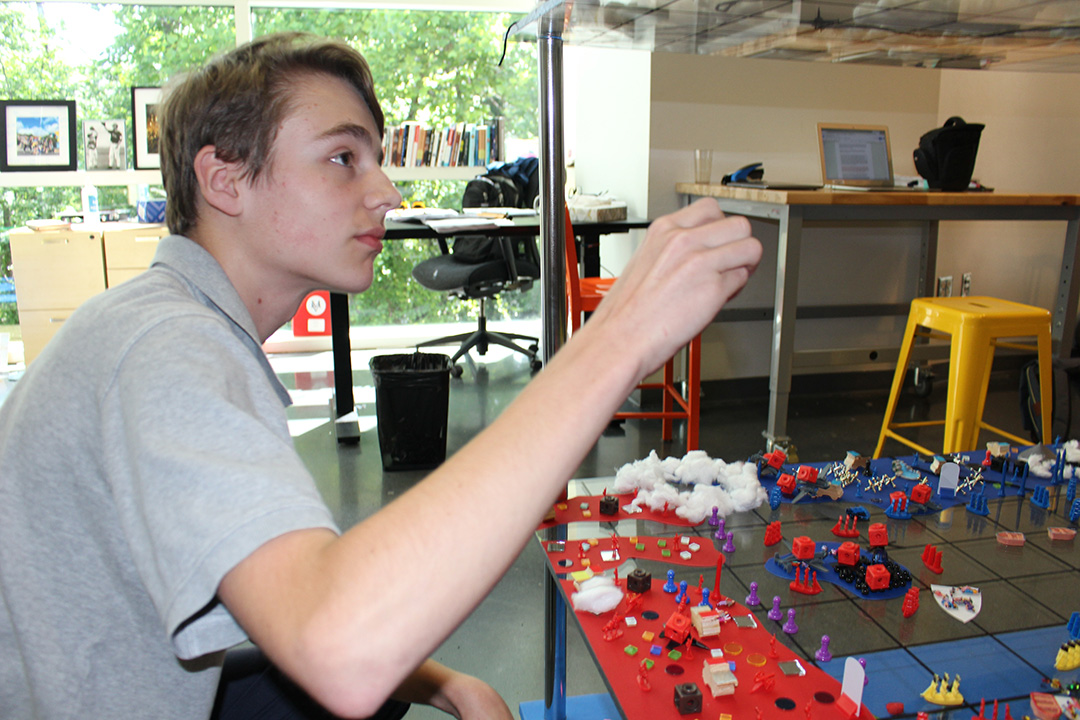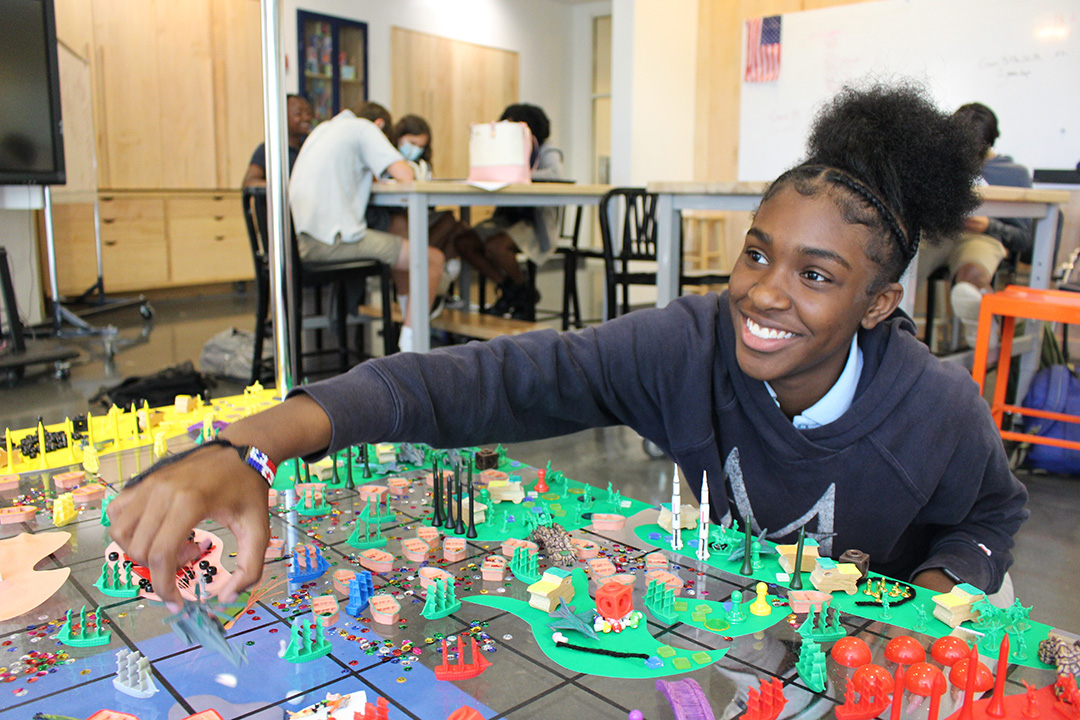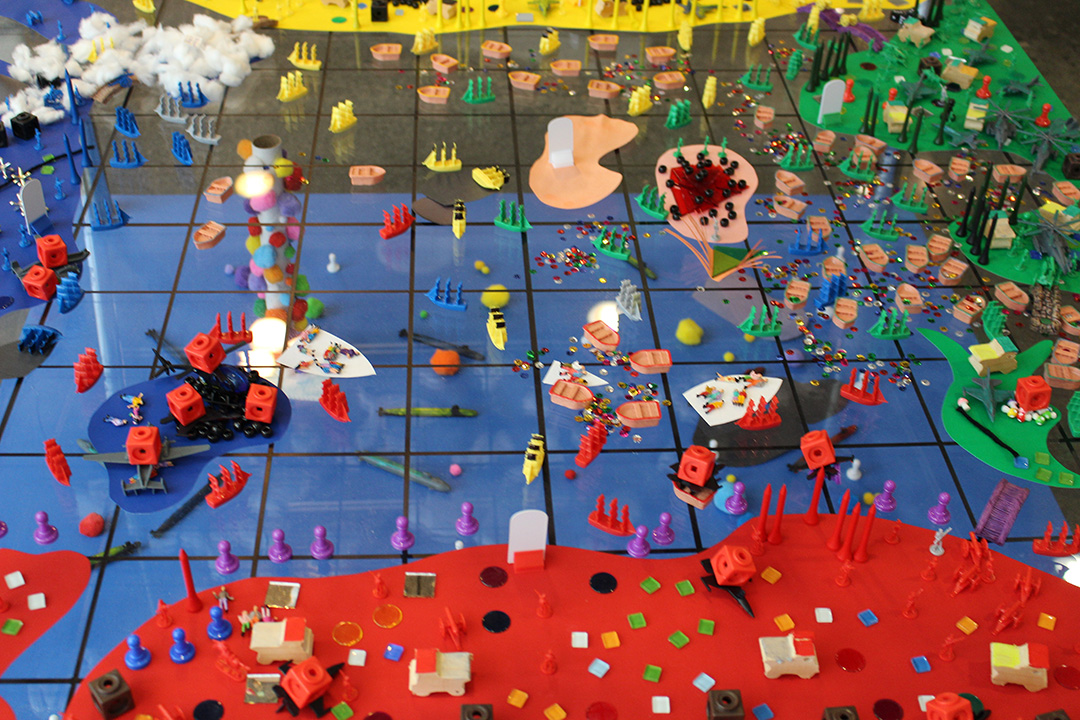How might we prepare all students to be globally competitive and engaged citizen leaders?
Over the last month, grade 8 students have had a unique opportunity to experience this piece of Mount Vernon’s mission. The World Peace Game, created and developed by the World Peace Game Foundation’s John Hunter, is a Problem Based Learning experience that embodies all of our Mount Vernon Mindsets.
Through the lens of world peace, student teams were tasked to solve 25 to 50 diverse, complex, and interlocking world crises, while their instructor, Dr. Todd Wass, took a step back to watch the magic unfold.
How do students win the game? By solving every problem and increasing each country’s starting budget. “Students worked on problems related to environmental disasters, religious and ethnic tensions, resource depletion, global warming etc…” Grade 8 Humanities Teacher, Dr. Todd Wass said.
To play, each team took responsibility for one country on a four-tiered plexiglass and plastic piece game board that included outer space, air space, land, and undersea levels with individual problems facing each territory. After collaborating and meeting peacefully (mostly) with their counterparts, teams were able to navigate through these problems while moving pieces on the board. This simulation of competitive scenarios and implied pressures created an immersive environment that forced our young collaborators to find solutions through creative thinking, innovating, and ethical decision making to prevent all out war.
Dr. Wass was clear with his students, “One person could not win the game on their own. The only way to win was to come together and work on the interconnected problems in a collaborative way.”
Not only does this intricate game embody our Mount Vernon Mindsets, it also fosters self-reflection. As John Hunter intended, students were able to find the value in non-measurable outcomes such as empathy and compassion. For example, if a war broke out and lives were lost, the rules of the game state that the leaders of the country needed to write individual letters to the families of those that died in battle, explaining how and why their loved one didn’t come back from war. This act triggered extreme empathy while helping our leaders see why negotiation is oftentimes better than waging war.
During the course of the game, students kept a reflective thinking log to track their feelings about each game day. One of our grade 8 students, Christain Foster, kept a highly detailed reflection log. He wrote, “Today we changed our focus… we had an important role that I had to implement. Instead of auditing and planning for our future like we normally would, we shifted into helping others solve crises. For now, the importance of solving these is more pressing than our financial goals. I think it can wait while we try and help others so that we can actually have a future with a thriving economy”. Christain realized his team’s personal goals were not as important as communicating with the other teams to solve the individual crises and ultimately finish the game.
If you would like to learn more, follow the link to check out the World Peace Foundation website. Or watch this TED Talk by John Hunter.



